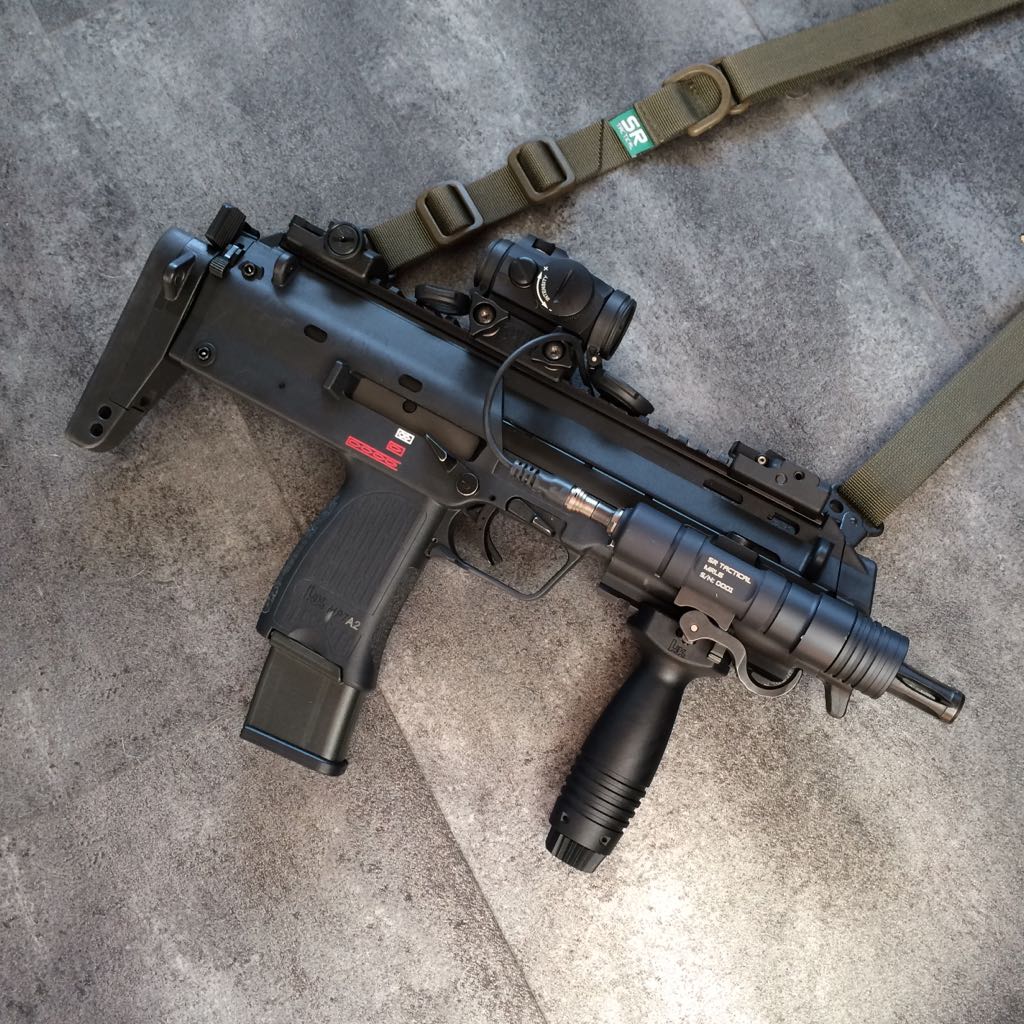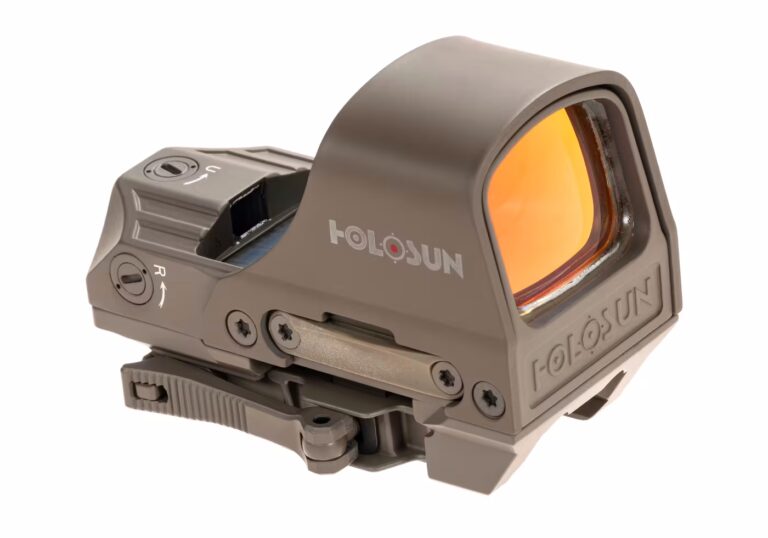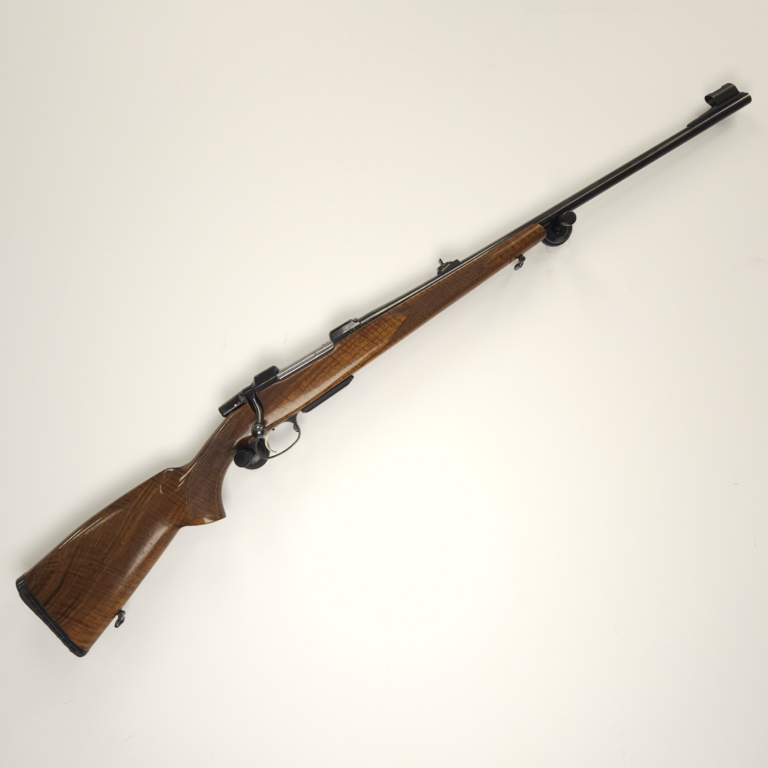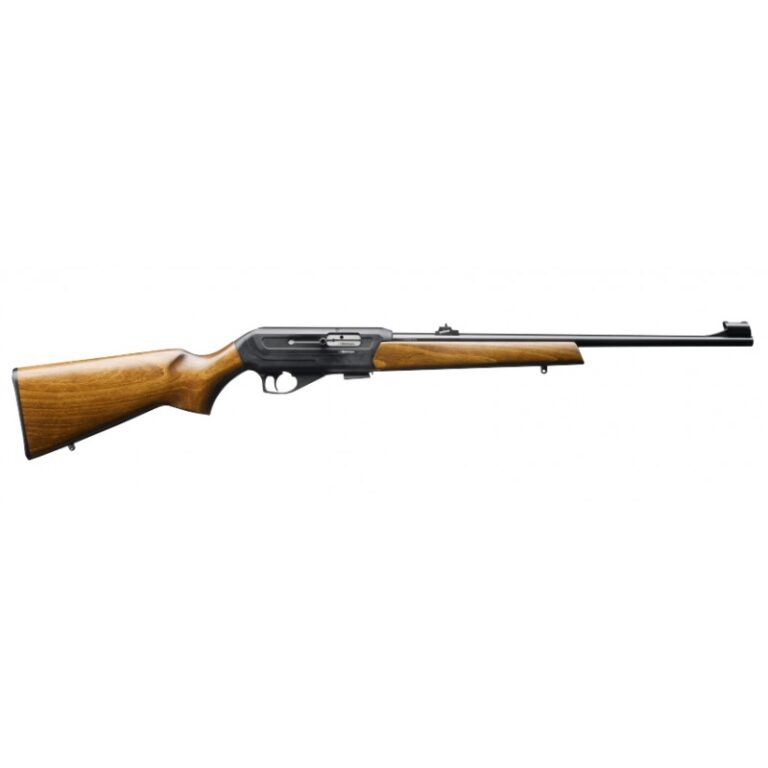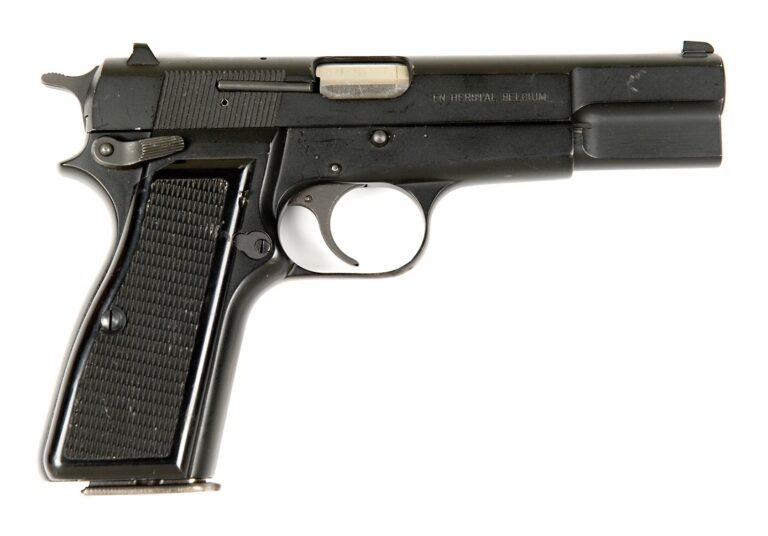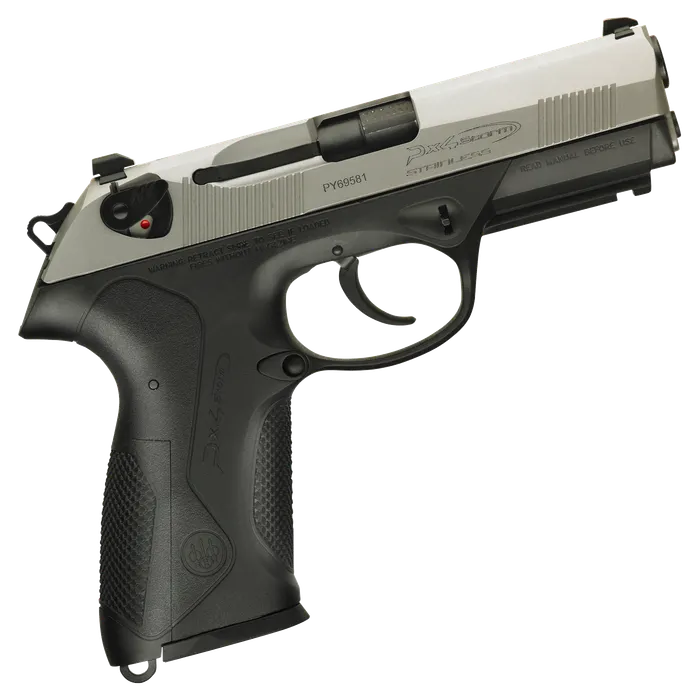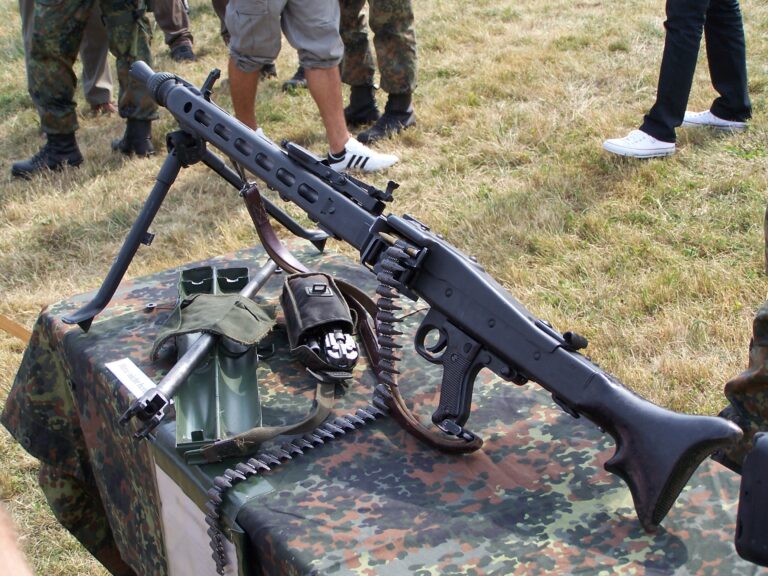Introduction
The Heckler & Koch MP7 is a compact machine pistol designed to meet the modern demands of close combat, particularly in the face of the increasing use of personal ballistic protection. Chambered in 4.6×30 mm, a caliber specially developed to pierce bulletproof vests, the MP7 combines the maneuverability of a pistol with the capabilities of a high-rate machine pistol.
Adopted by many special forces and tactical units around the world, it represents a direct technological response to the need to equip operators with a compact, lightweight weapon capable of neutralizing protected targets.
Development context
In the 1990s, NATO issued a requirement for a Personal Defense Weapon (PDW ) capable of piercing Level IIIA body armor at a reasonable distance, while remaining more compact than an assault rifle.
HK then began developing the MP7, in parallel with the 4.6×30 mm caliber, a high-velocity ammunition with excellent piercing power. The weapon went into production in 2001 under the name MP7, then evolved in subsequent versions.
Technical specifications
| Features | Detail |
|---|---|
| Caliber | 4.6×30 mm HK |
| Magazine capacity | 20, 30 or 40 shots |
| Overall length | 638 mm (stock extended) / 415 mm (folded) |
| Barrel length | 180 mm |
| Firing rate | Approx. 950 shots/min |
| Weight (unloaded) | Approx. 1.9 kg |
| Mechanism | Blowback with closed cylinder head |
| Materials | Reinforced polymer, steel |
| Integrated accessories | Picatinny top and side rails |
Design and ergonomics
The MP7 is designed for ambidextrous, lightweight and intuitive use:
Central pistol grip for easy one- or two-handed shooting.
Quick-release telescopic stock.
Folding front handle, integrated into the weapon for greater stability.
Picatinny rails on top and sides for mounting lamps, optics and pointers.
Magazine inserted into the handle, like a pistol.
Its polymer construction and compact size ensure excellent manoeuvrability, even in confined or urban environments.
Performance and ballistics
The 4.6×30 mm calibre offers :
A muzzle velocity of around 720-750 m/s, depending on the ammunition.
Effective penetration of soft ballistic protection (type IIIA body armour) at distances of 100-150 metres.
Low recoil force, facilitating burst firing.
A tight trajectory, with high precision up to 200 metres.
MP7 variants
MP7A1
The most widespread version, with a few ergonomic improvements and a longer top rail for mounting optics.
MP7A2
Optimized version for accessory mounting, without integrated front handle (replaced by a rail), offering greater tactical flexibility.
MP7 SD (prototype)
Version with integrated sound moderator (not mass-produced), designed for discrete operations.
Adoption and users
The MP7 has won over many special forces units and government agencies:
GSG 9 (Germany)
SAS (United Kingdom)
US Navy SEALs
SEK and MEK (German police)
French Special Forces
Various European and Asian anti-terrorist units
Its effectiveness against protected targets and extreme maneuverability make it the weapon of choice for operations in confined spaces, on-board operations and close protection missions.
Comparison with other PDWs
| Model | Gauge | Capacity | Main feature |
|---|---|---|---|
| MP7 | 4.6×30 mm | 20-40 | Compact, powerful, lightweight |
| FN P90 | 5.7×28 mm | 50 | Ergonomic bullpup, horizontal loader |
| Uzi Pro | 9×19 mm | 20-32 | Compact but classic caliber |
The MP7 wins out for its ability to pierce modern bulletproof vests while retaining intuitive ergonomics. Compared to the P90, it is narrower and often preferred for its more classic format.
Conclusion
The HK MP7 is much more than just a compact machine pistol. It embodies the modern response to the demands of close combat against protected enemies. Combining lightness, penetration capability, ergonomics and adaptability, it has established itself as a world reference among PDW weapons.
Appreciated by elite units and security forces alike, the MP7 remains a highly effective solution for all missions where space, speed and discretion are crucial.

